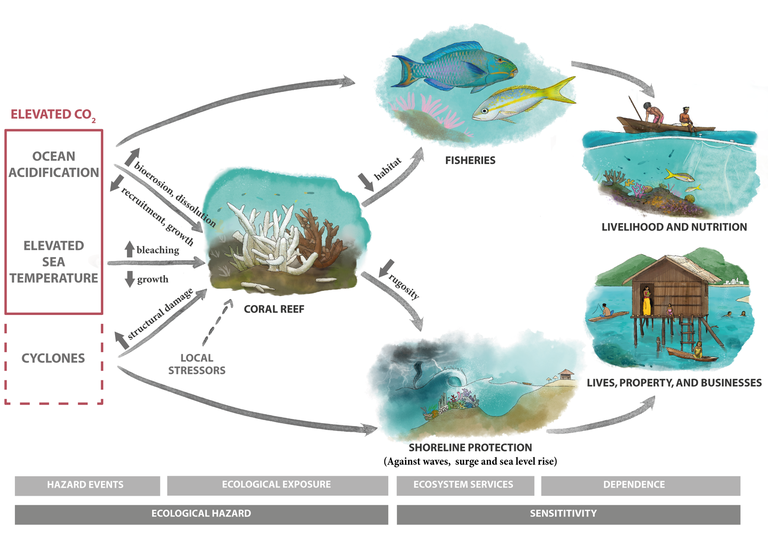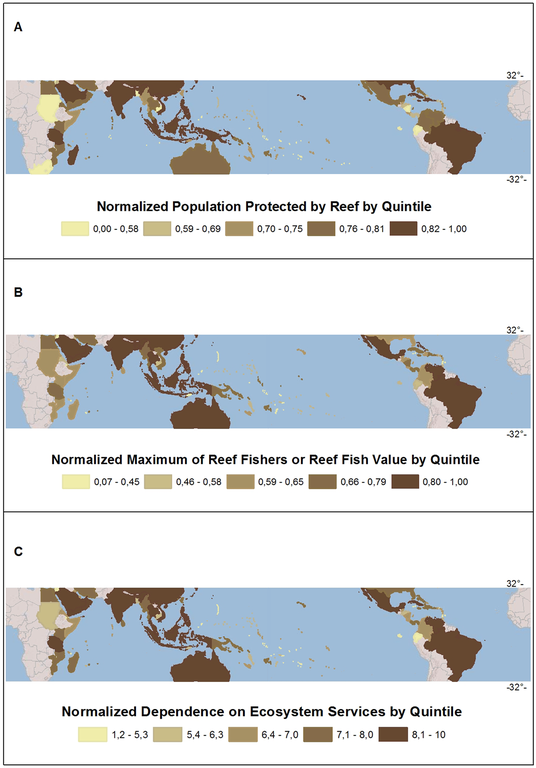Who depends on coral reefs?
Coral reef ecosystems are complicated and complex systems. Increased CO2 in the atmosphere poses special threats for coral reefs and people. A group of 17 scientists recently attempted to collect data to better understand where people depend on coral reefs and how these people might be impacted by the effects of climate change and ocean acidification on coral reefs.
People depend on coral reefs
People depend on coral reefs in two important ways:
- For livelihood and nutrition: coral reefs are home to many fish species including many that are commercially and nutritionally important. Coral reef fisheries support jobs, incomes and food to local fishermen and their communities.
- For lives, property and businesses: due to their structure, coral reefs play an important role in shoreline protection. They act as a buffer against currents and waves and protect communities from storm surfer and erosion associated with sea rise and natural hazards. Thanks to healthy coral reefs, people living by the coast are safer.

Fig 1. A conceptual diagram linking stresses related to increased atmospheric CO2 (elevated sea surface temperature and ocean acidification), storms, and local stressors to coral reef condition, selected ecosystem services provided by reefs, and human dependence on these ecosystem services. Solid lines represent relationships evaluated in this study.
Who are the people relying the most on coral reefs?
Coral reefs are found in tropical and semi-tropical waters, where water is salty and warm. As a consequence, we can find them between the latitudes 32°N and 32°S.
We mapped the dependence of people on shoreline protection (panel A) and fisheries (B) by examining how many people are protected by coral reefs and measures of dependence on coral reef fisheries. For each, we type of dependence we created a score and then grouped countries by how they ranked (each color represents a quintile). More brown means more dependent. Panel C (bottom map) shows the combined dependence of countries on coral reef benefits. South-East Asia, Americas, Oceania and Eastern Africa are all places that are highly dependent upon the ecosystem services provided by coral reefs.

Fig 2. Scores of Human Dependence on Coral Reef Ecosystem Services, by Country. Panel A provides the normalized scores for human dependence on shoreline protection, Panel B shows the normalized scores for dependence on reef fisheries, and Panel C shows combined human dependence. All scores are normalized on a scale from 0-10. Higher scores reflect higher human dependence. Countries are binned by quintile in the legend.
